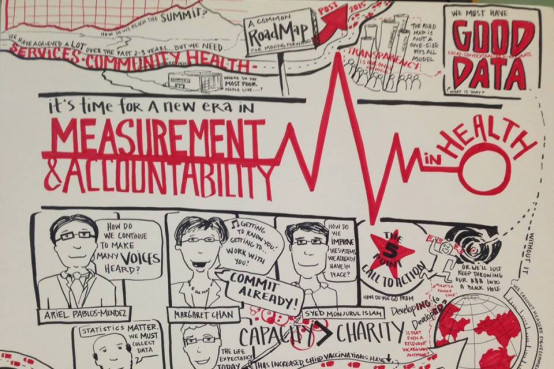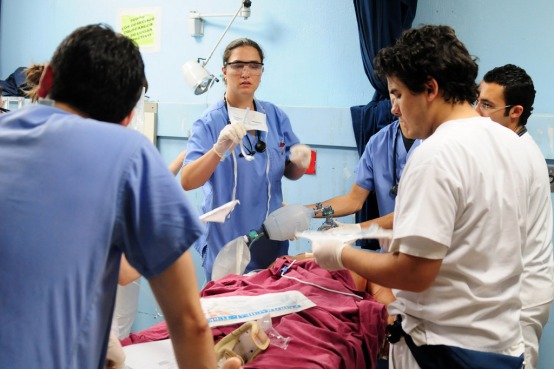Some 400 million people do not have access to health services and 6 per cent of people in low- and middle-income countries are tipped into or pushed further into extreme poverty because of the high cost of health spending, according to a report released on 12 June 2015 by the United Nations World Health Organization (WHO) and World Bank Group.
“The world’s most disadvantaged people are missing out on even the most basic services,” Dr. Marie-Paule Kieny, WHO Assistant Director-General, Health Systems and Innovation, said in a joint WHO/World Bank press release.*
“A commitment to equity is at the heart of universal health coverage,” continued Dr. Kieny.
“Health policies and programmes should focus on providing quality health services for the poorest people, women and children, people living in rural areas and those from minority groups.”
“However,” the report said, “there is still a long way to go on the road to UHC [universal health coverage] both in terms of health service and financial protection coverage.”
The report looks at global access to essential health services – including family planning, antenatal care, skilled birth attendance, child immunization, antiretroviral therapy, tuberculosis treatment, and access to clean water and sanitation¬ – in 2013, and found that at least 400 million people lacked access to at least one of these services.
In addition, across 37 countries, 6 per cent of the population was tipped or pushed further into extreme poverty ($1.25/day) because they had to pay for health services out of their own pockets.
A patient is attended to by medical staff at the San Juan de Dios Hospital in Guatemala. Photo: World Bank/Maria Fleischmann | Source: UN
The World Bank’s Senior Director of Health, Nutrition and Population, Dr. Tim Evans, noted that the report “is a wakeup call.”
“It shows that we’re a long way from achieving universal health coverage,” Dr. Evans said. “We must expand access to health and protect the poorest from health expenses that are causing them severe financial hardship.”
This is the first in a series of annual reports that WHO and the World Bank Group will produce on tracking progress towards UHC across countries.
WHO and the World Bank Group recommend that countries pursuing universal health coverage should aim to achieve a minimum of 80 per cent population coverage of essential health services, and that everyone everywhere should be protected from catastrophic and impoverishing health payments, according to a joint press release. (*Source: UN).
2015 Human Wrongs Watch











